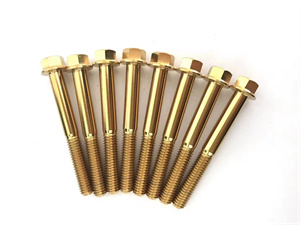CNC machining is a commonly used method for producing custom fasteners such as screws and nuts, which ensures high-precision and high-efficiency production. The following are the main steps and advantages of CNC Machining in producing screws and nuts:
Main steps
Design and Programming:
Use CAD (computer-aided design) software to create 3D models of custom fasteners, screws and nuts, specifying their dimensions, shapes, thread specifications, etc. in detail.
Using CAM (Computer Aided Manufacturing) software to convert CAD models into machining programs (G code) that can be executed by CNC machine tools.
Material preparation:
Choose materials suitable for screws and nuts, such as stainless steel, carbon steel, alloy steel, etc., to meet specific mechanical performance requirements.
Prepare raw materials, such as bars or plates, and perform cutting and pre-treatment as needed.
CNC machining:
Install the raw materials on the CNC machine tool and perform machining operations such as cutting, drilling, milling, and tapping according to the machining program.
The computer control system of CNC machine tools can accurately control the movement and rotation of cutting tools, ensuring the accuracy and consistency of screws and nuts.
Thread processing:
For screws and nuts, thread machining is a crucial step. CNC machine tools can process threads that meet the requirements through precise feed and rotation control.
Quality inspection:
Conduct quality inspection on the processed screws and nuts, including size measurement, thread accuracy inspection, material performance testing, etc.
Ensure that screws and nuts meet design requirements and relevant standards.
Subsequent processing:
As needed, surface treatment (such as galvanizing, spraying, etc.) should be applied to screws and nuts to improve their corrosion resistance or decorative properties.
Clean, dry, and package screws and nuts for storage and transportation.
advantage
High precision: CNC machining can achieve high-precision machining, ensuring that the size, shape, and thread accuracy of screws and nuts meet design requirements.
High efficiency: CNC machine tools have the ability of automation and continuous processing, which can significantly improve production efficiency and reduce production costs.
Flexibility: CNC Machining can adapt to various types of screw and nut production needs, including different sizes, shapes, and materials.
Consistency: As CNC machining is based on computer programs, the screws and nuts produced each time have a high degree of consistency, reducing the risk of product quality fluctuations.
Reducing human errors: CNC machining reduces manual operations, reduces the likelihood of human errors, and improves product quality.
